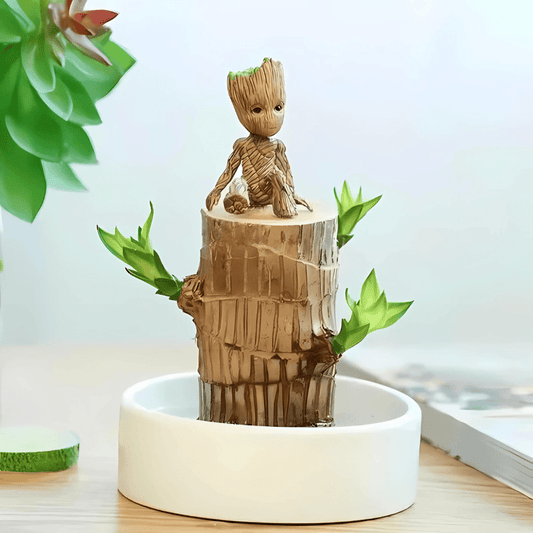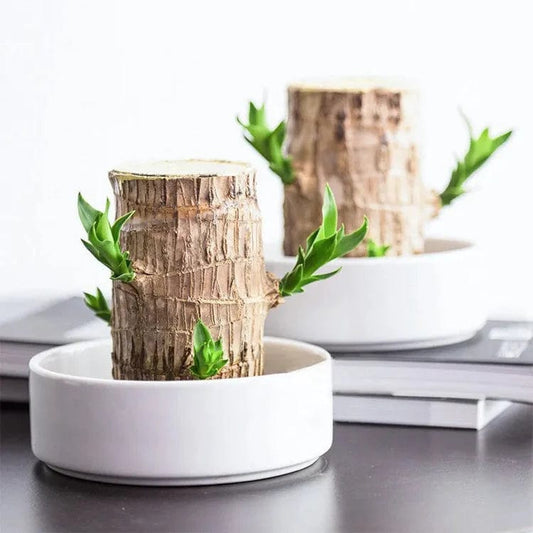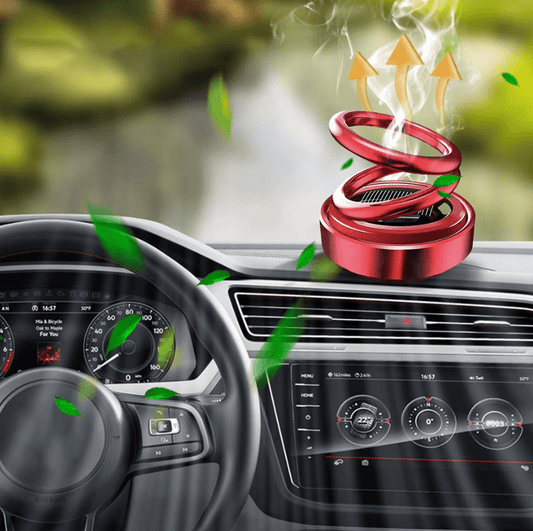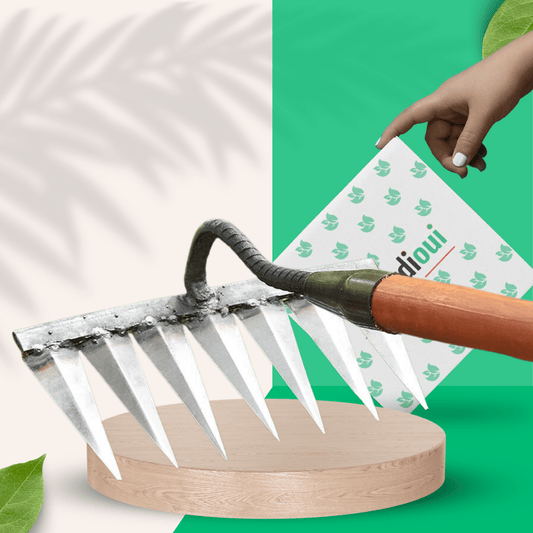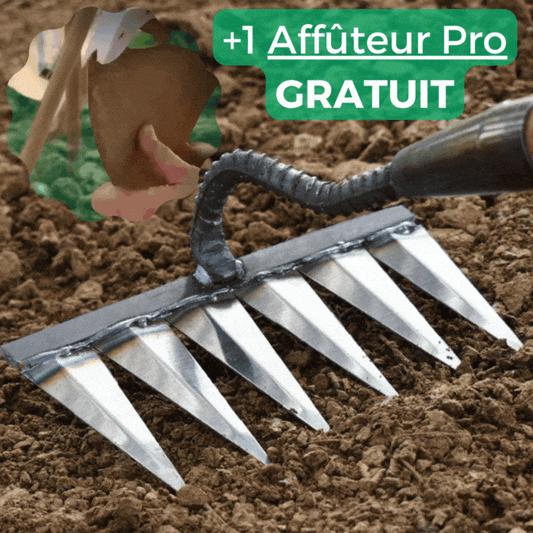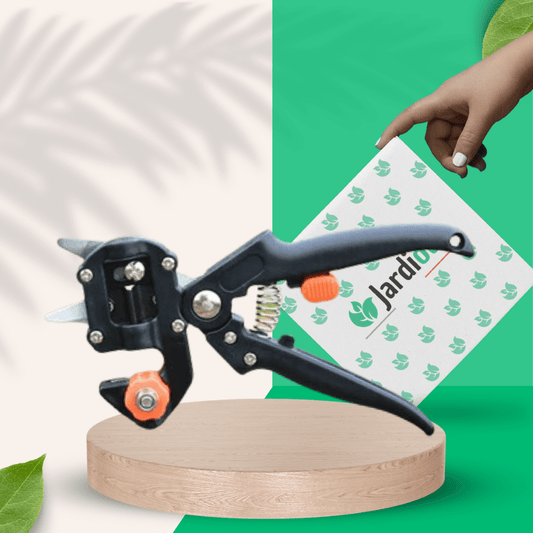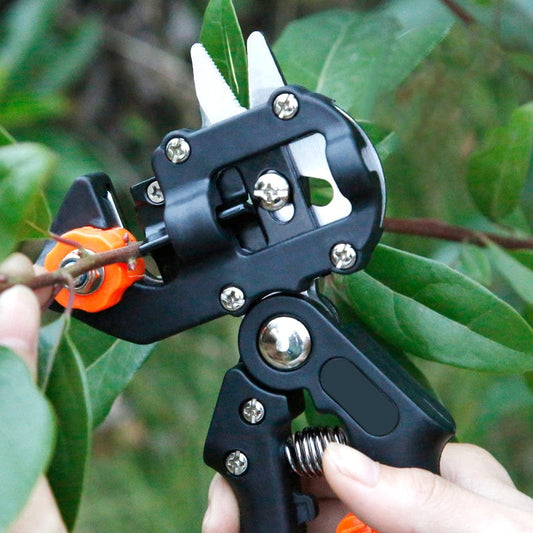Crop association for vegetables and herbs

Many factors help plants grow, including light, soil, water and nutrients. What many gardeners overlook are the beneficial relationships that exist between plants, a growing method known as plant association.
For example, a plant can repel garden pests that harm another species, while in return, that other species can improve soil nutrients. Vegetables in particular benefit from better yields, flavors and resistance to pests and diseases when located next to good neighbors. Conversely, certain combinations can lead to poor performance.
Plant association is not an exact science. Some combinations work better than others; Factors such as weather and regional differences can affect effectiveness. Understanding how plants, insects and organisms work together can reduce or eliminate the need for inorganic remedies, increase your gardening success and influence your plant choices.
Here are some key vegetables and herbs to consider, along with their beneficial aids and plants to avoid. These are general recommendations; results may vary.
COMPANION PLANTS FOR THE VEGETABLE GARDEN ASPARAGUS
ASPERES
Companions: Basil, coriander, dill, marigold, parsley, tomato
Basil, marigold, parsley and tomato protect against the asparagus beetle. Cilantro and dill repel pests such as aphids and mites.
Keep away from: Garlic, onion, potato

BASIL
Companions: Asparagus, beetroot, borage, carrot, chamomile, chives, marigold, oregano, pepper, radish, tomato, turnip
Borage improves the growth and taste of basil. Flowering herbs like chamomile, chives and oregano increase the essential oil content of basil. When planted together, basil and marigold are a powerful natural pest repellent.
Keep away from: Cucumber, fennel, rue, sage
Benefits of growing basil: Basil repels aphids, asparagus beetles, mosquitoes and tomato moths. It also improves tomato yields, while the flowers attract pollinators.
BEANS (DWARF)
Companions: Beetroot, broccoli, Brussels sprouts, cabbage, carrot, catnip, cauliflower, celery, corn, cucumber, eggplant, kale, marigold, nasturtium, pea, potato, radish, rosemary, squash, strawberry, tomato
Catnip repels the pulga beetle, a common pest of vegetables. Marigold and potato keep the Mexican bean beetle away. Nasturtium and rosemary repel bean beetles.
Stay away from: Alliaceae such as chives, garlic, onion and shallot can stunt the growth of legumes like beans.
Benefits of Growing Beans: Beans provide nitrogen to the soil.
BEANS (ROWED)
Companions: Broccoli, cabbage, carrot, catnip, cauliflower, celery, corn, cucumber, eggplant, marigold, nasturtium, pea, potato, radish, rosemary, squash, strawberry, tomato
Corn acts as a natural trellis while providing shade. The squash shades the roots and repels pests.
Keep away from: Pole beans may experience stunted growth when planted near beets, but this does not affect bush beans. Vegetables in the allium family such as chives, garlic, onion and shallot can also stunt the growth of pole beans.
Benefits of Growing Beans: Beans provide nitrogen to the soil.
BEETS
Companions: Beans, broccoli, Brussels sprouts, cabbage, cauliflower, garlic, kohlrabi, leeks, lettuce, onion
Garlic improves the growth and taste of beets.
To stay away from: Pole beans and beets inhibit each other's growth.
Benefits of Growing Beets: Composted beet greens add magnesium to the soil.
BROCCOLI
Companions: Basil, beetroot, celery, cucumber, dill, garlic, lettuce, marigold, mint, nasturtium, onion, potato, radish, rosemary, spinach, thyme
Dill attracts predatory wasps which control pests. Rosemary repels cabbage maggots. Celery, potato and onion enhance the taste of broccoli.
Keep away from: Asparagus, beans, corn, melons, peppers, pumpkin, squash, strawberries
BRUSSELS SPROUTS
Companions: Basil, beans, beetroot, carrot, garlic, mint, nasturtium, onion, peas, thyme
Brussels sprouts are susceptible to many pests, including aphids, beetles, cabbage caterpillar, cutworm, leafminer and pumpkin aphid. Potent companions such as basil, garlic, onion and mint can repel these pests.
Keep away from: Beans (stalks), strawberries, tomatoes. Strawberries can inhibit the growth of Brussels sprouts.
CHOU
Companions: Beans (dwarf), beets, celery, chamomile, dill, mint, onion, oregano, rosemary, sage, thyme
Marigolds and aromatic herbs such as mint, rosemary and thyme repel cabbage moths. Dill, celery, garlic, mint and onion improve the taste of the cabbage.
Keep away from: Beans (harvest), mustard, strawberries, tomatoes.
CARROTS
Companions: Beans, chives, lettuce, onion, peas, pepper, radish, rosemary, sage, tomato
Beans fix nitrogen in the soil. Chives improve growth and taste. Onion, parsley, rosemary and sage repel carrot fly.
Keep away from: Dill, parsnip. Dill can stunt the growth of carrots.
BUT
Companions: Beans, cucumber, marigold, melon, parsley, peas, potato, pumpkin, squash, sunflower
Corn is a big consumer; beans and peas add nitrogen to the soil. Marigolds repel Japanese beetles.
Keep away from: Celery, tomato. Tomatoes attract pests that also attack corn, including the tomato moth and European corn borer.
Benefits of Growing Corn: Corn provides shade and is a natural trellis for pole beans.
CUCUMBER
Companions: Beans, cabbage, cauliflower, corn, dill, lettuce, marigold, nasturtium, peas, radishes
Dill attracts beneficial insects that feed on pests such as the cucumber beetle. Nasturtium repels aphids and beetles while improving growth and taste. Radish repels pests, including cucumber beetles and rust flies.
Keep away from: Aromatic herbs (except dill), potatoes, tomatoes. Cucumbers grow poorly when planted near potatoes or sage.
ANETH
Companions: Broccoli, Brussels sprouts, cabbage, corn, cucumber, lettuce, onion
Keep away from: Coriander, carrot, tomato. Dill crosses with coriander and carrot.
Benefits of Growing Dill: Dill deters pests, including aphids, cabbage caterpillars and mites. It also attracts beneficial insects such as bees, hoverflies, ladybugs and parasitic wasps.
AUBERGINE
Companions: Beans, catnip, marigold, peas, pepper
Catnip repels flea beetles, a common pest of vegetables. Eggplant is a big consumer; beans and peas fix nitrogen in the soil. Marigold keeps nematodes away.
Keep away from: Other nightshades such as pepper, potatoes, tomatoes make eggplant more susceptible to rot.
SECOND
Companions: Beetroot, broccoli, cabbage, carrot, cauliflower, dill, eggplant, kohlrabi, pepper, potato, spinach, tomato
Chamomile enhances the taste of garlic. The street repels maggots. Summer savory and yarrow also benefit garlic.
Keep away from: Garlic can stunt the growth of asparagus, beans, parsley, peas and sage.
Benefits of Growing Garlic: Garlic repels a wide range of pests, including ants, aphids, cabbage caterpillar, sawfly, Japanese beetle, onion maggot, snails and mites.
CHOU KALE
Companions: Beetroot, beans, celery, cucumber, dill, garlic, lettuce, mint, onion, pea, pepper, potato, rosemary, sage, spinach
Kale is a large consumer of nitrogen. Plant near beans or peas, which add nitrogen to the soil.
Keep away from: Avoid planting kale near other brassicas such as broccoli, Brussels sprouts and cauliflower to prevent the spread of disease.
LETTUCE
Companions: Asparagus, basil, beans, beetroot, broccoli, Brussels sprouts, carrot, chives, corn, cucumber, eggplant, garlic, mint, onion, peas, radish, spinach, strawberry, tomato
Basil improves the taste of lettuce while repelling mosquitoes. Beets provide the minerals lettuce needs to thrive. Chives and garlic keep aphids away. Mint repels cabbage moths and slugs, which are lettuce pests.
What to stay away from: Some sources say to avoid planting lettuce near brassicas like broccoli and cabbage, while others say it's okay. Results may vary. Cabbage, celery and parsley can inhibit the growth of lettuce.
MINT
Companions: Beetroot, broccoli, Brussels sprouts, cabbage, cauliflower, eggplant, kale, kohlrabi, lettuce, peas, squash
Keep away from: Chamomile, parsley
Benefits of growing mint: Mint is a natural pest repellent. It repels flea beetles, which bore holes in the leaves of cabbage, cauliflower, kale and radishes. It also deters aphids, carrot maggot, mealybugs, onion maggot and mites. Mint attracts beneficial insects such as hoverflies, ladybugs and predatory wasps that prey on pests.
ONION
Companions: Beetroot, broccoli, Brussels sprouts, cabbage, carrot, chamomile, lettuce, pepper, strawberry, tomato
Keep away from: Asparagus, beans, peas, sage. Do not plant near other alliaceae such as garlic, leeks and shallots to avoid the spread of onion maggots or rust.
Benefits of Growing Onions: Onions repel brassica pests, including cabbage caterpillars, cabbage worms and cabbage maggots. It also repels aphids, carrot flies and Japanese beetles.
THEN
Companions: Beans, carrot, celery, corn, cucumber, eggplant, lettuce, potato, radish, spinach, tomato, turnip
Stay away from: Alliaceae such as chives, garlic, onion and shallots can stunt the growth of peas.
Benefits of Growing Peas: Peas are good companions for many other vegetables because they increase the availability of nitrogen in the soil.
PEPPERS
Companions: Basil, beans, beetroot, carrot, chives, cilantro, cucumber, dill, eggplant, garlic, lettuce, parsley, onion, spinach, tomato
Basil repels aphids, mites and thrips, and improves the taste of peppers. Dill and cilantro repel aphids and encourage beneficial insects. Parsley attracts predatory wasps that feed on aphids. Alliaceae such as chives, garlic and onion repel aphids, beetles, slugs and mites.
Stay away from: Brassicas, including broccoli, Brussels sprouts, cabbage and cauliflower.
Learn more about how to grow peppers.
POTATOES
Companions: Basil, beans, cabbage, chamomile, corn, horseradish, lettuce, marigold, parsley, peas, radishes, spinach, thyme
Beans repel the Colorado potato beetle. Horseradish increases resistance to disease. Many herbs such as basil, chamomile, parsley and thyme enhance the taste of the potato while attracting beneficial insects.
Keep away from: Cucumber, raspberry and tomato attract harmful pests. Avoid planting near other nightshade family vegetables such as eggplant, pepper and tomato to prevent the spread of soil-borne pathogens. Asparagus, carrots, fennel, onions and turnips can stunt the growth of potatoes.
RADISH
Companions: Beans, carrot, chervil, cucumber, lettuce, melon, nasturtium, peas, spinach, squash
Chervil keeps away aphids and slugs, which are pests of radishes. Chervil and nasturtium improve the growth and taste of radishes.
Stay away from: Brassicas such as broccoli, Brussels sprouts, cabbage and cauliflower. Hyssop slows down the growth of radishes.
Benefits of Growing Radishes: Radish can be used as a "trap" plant to attract pests such as root maggots and flea beetles away from other vegetables. It also repels cucumber beetle and squash bugs.
ROSEMARY
Companions: Beans, broccoli, Brussels sprouts, cabbage, carrot, cauliflower, kale
Keep away from: Pumpkins, squash
Benefits of Growing Rosemary: The strong scent of rosemary repels many pests, including the bean beetle, cabbage caterpillar, cabbage moth, carrot fly, slugs, snails and weevils. Rosemary flowers attract pollinating insects. Rosemary enhances the taste of sage when planted together.
SQUASH / ZUCCHINI
Companions: Beans, borage, corn, marigold, nasturtium, peas, radishes, tansy
Borage attracts pollinators and improves growth and taste. Nasturtium keeps aphids and bugs away from squash while improving growth and taste. Radish and tansy repel squash bugs.
Keep away from: Potato, pumpkin. The potato is a heavy consumer, competing for nutrients. Pumpkin, which is closely related to squash, can cross-pollinate, affecting seeds saved for the next year's crop.
STRAWBERRY
Companions: Beans, borage, caraway, chives, garlic, lettuce, onion, sage, spinach, thyme
Alliaceae such as garlic and chives repel predatory insects. Borage attracts pollinators and repels strawberry pests while increasing disease resistance. Caraway attracts beneficial insects such as wasps which kill strawberry pests. Planting lettuce, spinach and strawberries together can improve productivity.
Keep away from: Plants susceptible to verticillium wilt such as eggplant, pepper, potato and tomato should not be planted nearby. Strawberry can inhibit the growth of brassicas such as broccoli and cauliflower.
TOMATO
Companions: Asparagus, basil, borage, carrot, celery, chives, cucumber, garlic, lettuce, marigold, mint, onion, parsley
Asparagus repels nematodes that attack tomato plants. Basil improves tomato growth and repels pests such as flies and tomato moth. Borage improves growth and taste and repels tomato moth.
Keep away from: Do not plant near dill or brassicas such as broccoli, Brussels sprouts, cabbage and cauliflower, as they can stunt tomato growth. Stay away from corn, which attracts tomato moth.
Benefits of Growing Tomatoes: Plant tomatoes near asparagus to repel the asparagus beetle.
ADVANTAGES OF PLANTS ASSOCIATION
The many benefits of combining plants include:
- Plants that repel pests on other plants reduce the need for other forms of pest control.
- Root vegetables such as carrots break up soils, decreasing soil compaction and increasing aeration.
- Plants that support each other reduce the need for stakes and trellises.
- Peas and other legumes fix nitrogen in the soil, feeding other plants.
- Plants with a large canopy such as pumpkins and squash can reduce weeds, shade other nearby plants and reduce water use.
- Vegetables have higher yields and better taste when located next to compatible plants.
- Combining plants maximizes the use of your garden space.
HISTORY OF PLANT ASSOCIATION: THE THREE SISTERS
The concept of combining plants dates back hundreds of years. Indigenous people planted corn, beans, and squash together, a symbiotic combination known as the Three Sisters.
Corn provides a natural trellis for climbing beans, while bean vines anchor corn stalks, making them less prone to being toppled by the wind. Beans attract beneficial insects while increasing nitrogen levels in the soil, helping corn and squash grow. The squash's large leaves suppress weeds and provide shade to cool the soil, slowing water evaporation. The small thorns along the squash's stems and leaves deter predators and pests.
At the end of the growing season, spent plants are worked back into the soil to provide nutrients for the following year.






